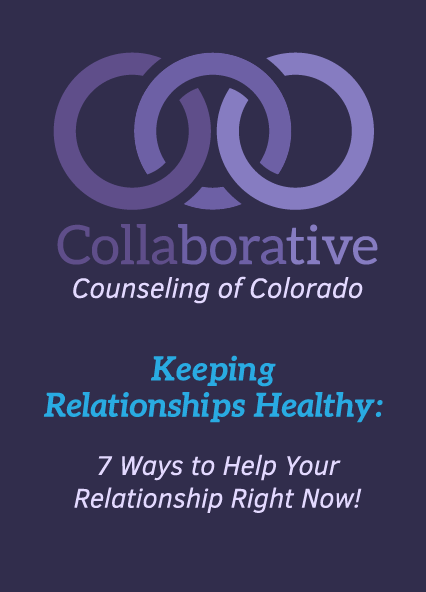Hello again, friends!
In my last blog post, “Anxiety, Part One”, I shared with you all a list of 9 tips for coping with anxiety from the Mayo Clinic. I promised that I would explain why these tips are important to implement for those of us that suffer from the symptoms of anxiety.
First, let me share some more information about what exactly is anxiety. The American Psychological Association defines anxiety as “an emotion characterized by feelings of tension, worried thoughts and physical changes like increased blood pressure” (1). Anxiety is our built-in alarm system that signifies to us that something is potentially wrong, harmful or dangerous. Bottom line, we NEED anxiety to keep us safe and small amounts of anxiety are actually good! However, chronic anxiety is problematic for both our mental and physical health. The list of physical ailments that may result from prolonged anxiety is extensive, but some of the most common are: increased blood pressure and cholesterol, headaches and/or migraines, lower back pain, fatigue, weight gain, heartburn, decreased sexual appetite or libido and panic attacks
Are you convinced that it is important to find effective, healthy ways to cope with anxiety?
Here is the list of 9 tips for coping with anxiety from the Mayo Clinic that I shared in my last post:
- Eat healthy foods
- Be physically active
- Make sleep a priority
- Use stress management and relaxation techniques
- Avoid alcohol and recreational drugs
- Quit smoking
- Reduce or eliminate caffeine
- Socialize
- Keep a journal
Eat Healthy, Exercise Regularly and Sleep Like You Mean It
So why are these tips helpful when trying to manage stress and anxiety? Let’s start with the first three. When we eat food that is packed with nutritious vitamins, minerals, healthy fats and protein, our bodies can run efficiently… which gives us more sustainable energy throughout our day. When we have more energy, there is less need for sugar and caffeine, both of which can exacerbate anxiety symptoms.
Consistent sleep is necessary for our brain to function properly and a lack of sleep puts additional stress on our system. Sleep is so incredibly important to both mental and physical health that it deserves its own blog post (spoiler alert!).
Exercise, like sleep, has so many benefits to the body and brain that it, too, deserves its own post. To be extremely brief, exercise kickstarts the production of dopamine and serotonin, two neurotransmitters that are linked with feelings of happiness. Exercise has also been shown to improve sleep. Therein starts a cycle of better exercise, better sleep and better moods…all of which help to reduce anxiousness.
Relaxation techniques
Relaxation techniques, such as breathing exercises and meditation, are effective in reducing stress and anxiety. The reason? Stress activates what is called our vagus nerve system. This is the built in alarm system that I referred to earlier. This is the system that makes our bodies prepare to fight or flee in the face of danger. When a person is experiencing stress, the vagus nerve system sends messages to the organs of the body to prepare for life-saving action. This results in our heart rates increasing, blood pressure and our breathing to accelerate. The simple act of taking slower, deeper breaths starts to bring down one’s heart rate and blood pressure. It starts to deactivate the body’s stress response and activate the “relaxation” response. Once the body’s relaxation response is operating, it is easier to think clearly and rationally, improving our ability to problem solve. And let’s face it, that’s what a lot of us are trying to do when we are anxious…fix our problems!
Relaxation techniques may feel counterintuitive for some. It is easy to get caught up in the cycle of “ramping up” when stress levels are high. This cycle often looks like increases in caffeine intake, reducing sleep, reducing exercise, increasing fast foods or comfort foods and increasing the intake of alcohol or other substances. Sound familiar? Practicing relaxation techniques and taking “do nothing” breaks (even in increments as small as 2 minutes!) are healthier habits for long term health maintenance when one deals with stress and anxiety.
Caffeine, alcohol and other substances
Oh, these are tempting, aren’t they?! Whether it is consuming caffeine to amp up, or drinking alcohol to wind down, or using any other substance to help create a certain state of being, consuming “uppers” or “downers” often feels like an easy fix to whatever ails us. Yes, drugs may provide temporary relief, but the reality is that once the desired effects have worn off, the initial problem and symptoms are often worse.
Over time, one who depends on substances for getting through tough feelings or emotions does not learn how to truly cope with issues when they arise, and therefore the drug dependency grows and self esteem gradually deteriorates.
Socialize
Here is a fact: human beings are social creatures. Think about our early days of existence when we had to depend on each other for survival. We are wired and programmed to interact and thrive with other humans. Although our modern environments have drastically changed since our caveman days, our biological need for connection has not. The U.S. Surgeon General’s office recently published a health advisory titled “Our Epidemic of Loneliness and Isolation”. After reviewing several studies, the Surgeon General’s office reported that “both social isolation and loneliness have been shown to independently increase the likelihood of depression or anxiety” (6). They found this to be true in adults, as well as teenagers and children.
Journaling
Even if you feel like journaling is not your cup of tea, hear me out because the benefits of journaling can be surprising. Thoughts that ruminate in our heads can often seem overwhelming. Our minds have an amazing capacity to spin these thoughts into something new entirely, based on our core beliefs and biases. Given that our brains have a natural tendency to steer towards the negative, ruminating thoughts don’t stand much of a chance for rational thinking or a positive outcome.
This is where journaling comes in. Issues that have been merely contemplated suddenly have more clarity when written down and it is easier to prioritize the next steps. A long term benefit of scribing thoughts is a documentation of our moods, triggers and thinking process, which can provide useful insight of our potentially destructive patterns.
Even with the best tips and coping mechanisms, sometimes anxiety can seemingly develop a life of its own. If you feel like your anxiety is getting beyond your control, the best thing to do is seek out the help of a professional counselor.
Until next time, be well my friends!
-Suzanne

